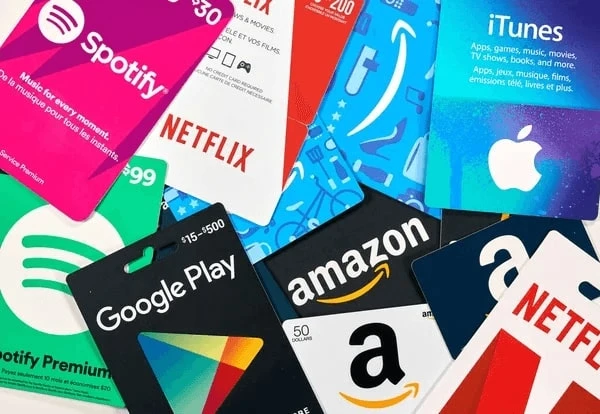Gift cards are commonly used as a flexible gifting option, allowing recipients to choose their preferred items or experiences. They are widely available for various retailers, restaurants, and services, making them a practical choice for many occasions. A key question that often arises is whether gift cards expire, depending on specific regulations and terms. This article explores the details behind gift card expiration dates, laws, and trends to help you understand how they work and maximize their value.
The Basics: Do Gift Cards Expire?
In the U.S., most gift cards issued for general use (such as those for popular retailers and restaurants) do not expire for at least five years. This is thanks to federal regulations outlined in the Credit Card Accountability Responsibility and Disclosure (CARD) Act of 2009. This act protects consumers by requiring:
- A minimum expiration period of five years from the date of issuance or last load.
- Clear disclosure of any expiration dates and associated fees.

Understanding the CARD Act
The CARD Act was designed to address common frustrations and unfair practices in the financial services industry, including those associated with gift cards. Here are some key provisions of the CARD Act as they relate to gift cards:
- Fee Restrictions: The act limits the fees that can be charged on gift cards. For example, inactivity fees can only be applied if the card has not been used for at least 12 months. Additionally, only one fee may be charged per month, ensuring that consumers are not hit with multiple penalties.
- Transparency Requirements: Issuers must clearly disclose all terms and conditions, including expiration dates and any fees, so that consumers can make informed decisions.
- Balance Protection: The CARD Act ensures that gift card balances remain available for the full five-year period, even if fees are deducted. If a card’s expiration date has passed but funds remain, consumers may be entitled to a replacement card at no cost.
How the CARD Act and Escheatment Differ by Purchase Type
What is Escheatment?
Escheatment refers to the process by which unclaimed or abandoned property, such as the unused balance on a gift card, is turned over to the state. This typically happens after a specific period of inactivity, as determined by state laws. Escheatment laws are designed to ensure that businesses do not retain unclaimed funds indefinitely and that consumers or rightful owners have a way to recover them through the state’s unclaimed property office.
The CARD Act applies broadly to consumer-purchased gift cards but does not always cover those purchased by businesses for certain purposes, such as promotional or bulk incentives. This difference creates nuances for:
Consumer-Purchased Gift Cards
- Full Protections: Cards bought by consumers for personal use are fully protected under the CARD Act, ensuring transparency, limited fees, and a minimum expiration period.
- Escheatment Implications: If the balance remains unused for an extended period, escheatment laws may apply. The balance may eventually be transferred to the state as unclaimed property, but consumers retain the right to claim it through the state’s unclaimed property system.
Business-Purchased Gift Cards
- Limited or Excluded Protections: Gift cards bought in bulk by businesses for promotions, rewards, or incentives often fall outside the CARD Act’s protections. These cards may carry shorter expiration periods or fees, depending on state laws and issuer policies.
- Escheatment Complexity: Balances on business-purchased cards are often treated differently under escheatment laws. For example, in some states, these cards may not be subject to escheatment at all, leaving unused balances with the issuing company.
Gift cards also play a significant role in corporate programs designed to motivate employees, reward customers, or drive sales. Here are some common applications:
- Employee Recognition: Many companies use gift cards to acknowledge hard work or celebrate milestones.
- Customer Rewards: Gift cards are a popular tool in loyalty programs, providing a tangible benefit that encourages continued engagement.
- Marketing Campaigns: Businesses may distribute gift cards as part of promotional efforts to attract new customers or reward referrals.
Gift cards used in these contexts often come with fewer restrictions, such as no expiration dates or fees, to enhance their appeal and effectiveness.
State Laws, Escheatment, and the CARD Act
While the CARD Act sets federal standards, many states have additional protections for gift card holders. For example:
- Expiration Dates: Some states, like California, prohibit expiration dates entirely. In these states, gift cards remain valid indefinitely, giving consumers greater peace of mind.
- Cash Redemption Laws: In states like Montana and Rhode Island, consumers can request cash back if the remaining balance on a gift card falls below a certain threshold (e.g., $5 or $10).
- Escheatment Laws: Escheatment laws in certain states require businesses to turn over unused gift card balances to the state as unclaimed property after a specified period. Consumers can recover these balances through the state, although the process may take time.

How Escheatment Affects Businesses and Consumers Differently
For consumers, escheatment laws ensure that unused balances don’t disappear entirely but may involve a cumbersome recovery process. For businesses, escheatment can introduce additional compliance requirements, particularly in states with strict unclaimed property rules.
Differences Between Consumer and Business Use of Gift Cards
Gift cards are not only popular among individual consumers but are also widely used by businesses. However, the purpose and usage differ significantly:
For Consumers
- Rewards and Incentives: Companies often use gift cards as part of employee reward programs or as sales incentives.
- Customer Retention: Businesses provide gift cards to encourage repeat purchases and build brand loyalty.
- Tax Implications: The distribution and use of business-purchased gift cards may create specific tax implications.
- Personal Gifting: Consumers typically purchase gift cards to give as presents for special occasions.
- Budgeting: Some individuals use gift cards as a budgeting tool, limiting spending to a preloaded amount.
- Ease of Use: Consumers appreciate the convenience and flexibility of choosing their own items.
For Businesses
Key Distinctions
- Regulatory Differences: Consumer-purchased cards enjoy broader protections under the CARD Act compared to business-issued cards.
Flexibility and Fees: Business-purchased gift cards may have unique terms, including shorter expiration dates or inactivity fees.
Future Implications: What’s Next for Gift Cards?
The gift card industry is constantly evolving. Here’s what to watch for in the coming years:
1. Increased Regulation
As consumer demand grows, regulators may introduce additional protections to reduce fees further and extend expiration periods. Governments worldwide are recognizing the importance of fair practices in the gift card market.
2. Personalized Options
Customization is becoming a key feature. Imagine sending a gift card with personalized designs, messages, or even variable amounts that change based on the recipient’s spending patterns.
3. Integration with Loyalty Programs
Some brands are integrating gift cards into their loyalty programs, allowing users to earn points for every dollar spent with the card. This creates additional value and incentivizes spending.

Why Choose Dyme Gift Cards?
At Dyme, we’re making gift cards more meaningful by aligning them with sustainable values. The Dyme One4All Card (Dyme One4All) goes beyond convenience. Each card helps fund clean energy projects, reducing air pollution, creating jobs, and providing affordable electricity for communities. By choosing Dyme, you’re not just giving a gift—you’re contributing to a healthier planet.
If you have more questions, all Dyme gift cards come with detailed FAQs to address your concerns. Visit our Dyme Gift Card page to learn more and find answers to common questions.
Ready to explore eco-friendly gifting? Learn more about our offerings at Dyme Gift Cards.







